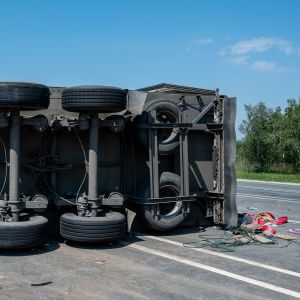This is the first of a two-part series about Connecticut DWI. In this first part, we will share with you the five most important things to understand in order to avoid a Connecticut DWI.
#1 – This may sound very simple, but the first way to avoid a Connecticut DWI is to simply not drive after you’ve had anything alcoholic to drink.
Combining alcohol with our body chemistry and our neurology creates complicated reactions and motor skill impacts. It isn’t an easy matter to understand how much alcohol is in a drink and how it may affect us on any given day. So, keep it simple and don’t drive after drinking.
#2 – Connecticut’s legal limit for blood alcohol content is .08.
A drink is defined by the Connecticut Department of Mental Health and Addiction Services, (DMHAS), as 1.5 oz. of 80 proof liquor, 12 oz. of regular beer, or 5 oz. of table wine. If you’re an average male, weighing approximately 160 pounds, DMHAS estimates that four drinks will put you above the legal limit. If you’re an average female and you weigh 140 pounds, three drinks will put you at .10, or two points above the legal limit.
Please understand that these are mere estimates. They don’t take into account whether and what you have eaten, whether you have any medical conditions, whether you’re taking any prescription medication and a number of other factors that will affect how your body metabolizes alcohol and how alcohol affects your behavior. Also, keep in mind that the “drink” unit is an average unit. A pint of a double IPA can be very, very different than a 12 ounce bottle of Budweiser. Likewise, 5 ounces of “table” wine may have little relation at all to the actual glass of wine that’s standing so attractively in front of you before appetizers even arrive.
THEREFORE, refer at all times to #1.
#3 – Connecticut is an Implied Consent Advisory State.
That means that when you operate a motor vehicle in Connecticut you have consented automatically to submitting to a blood alcohol test; this is usually a breath test. So, what this means is that if you’ve had a drink and you choose to drive, you can’t avoid an arrest by simply refusing to submit to a blood alcohol test. You also can’t avoid arrest by refusing to submit field sobriety tests such as the walk-and-turn test and the one-legged-stand test.
#4 – If you’re pulled over upon suspicion of DWI, one of the first questions that the officer will ask you is if you’ve been drinking. A “yes” response will automatically result in you being asked to step out of your car and the beginning of field sobriety tests.
#5 – If you are taking any medication at all that is intended to help with symptoms of depression or anxiety, your prescription may include the admonition that you should not drink alcohol. Certain prescriptions when combined with alcohol can severely accelerate and compound the motor skill impairments associated with alcohol consumption. Refer to #1.
BONUS – Connecticut’s DWI statute is entitled “Driving Under the Influence of Alcohol Drugs or Both”. Although Connecticut doesn’t have a breath test for marijuana, that doesn’t mean that you can’t be charged with DWI when operating a motor vehicle after consuming marijuana. It’s up to the police to choose the chemical test and you may be required to submit a urine sample. Either way, field sobriety tests alone can result in a DWI even without chemical proof.
Exercising caution and understanding both the effects of alcohol and body chemistry as well as Connecticut DWI law in advance will help you to avoid several hours if not an entire night in police lock-up. If you have questions about Connecticut DWI and Connecticut DWI defense, call us at the Maddox Law Firm. We have been defending Connecticut DWI’s for more than 27 years. We are a trial law firm dedicated to protect advocate and defend.




